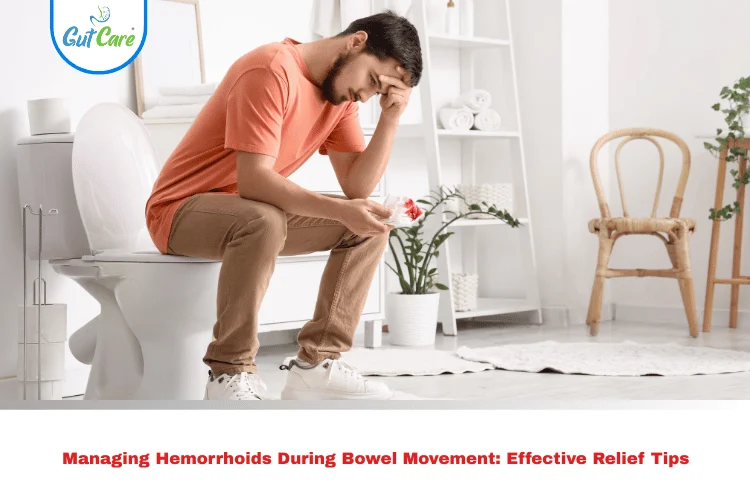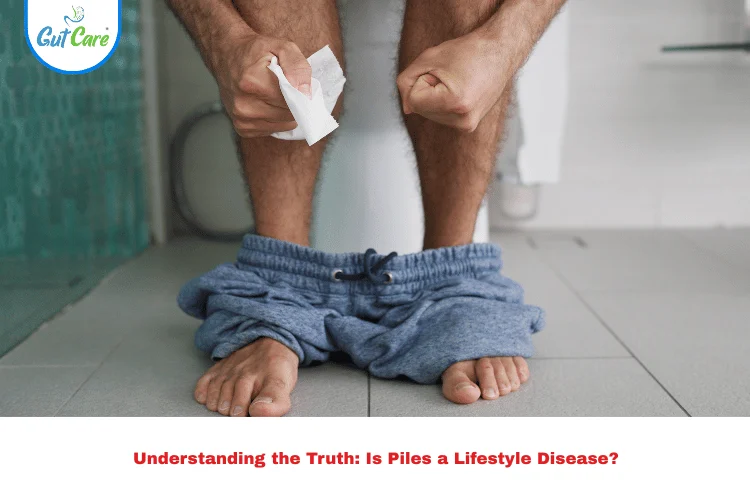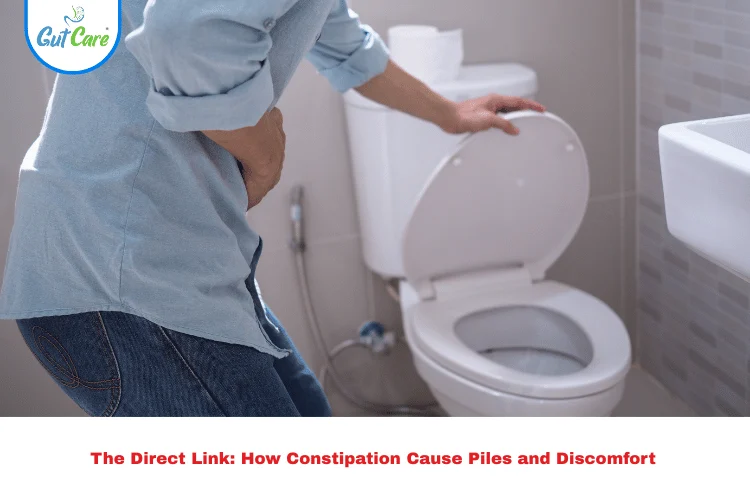If you’ve ever wondered what a thrombosed hemorrhoid is, you’re not alone. Many people experience this painful condition but don’t fully understand what it means or how to treat it. A thrombosed hemorrhoid occurs when a blood clot forms inside an external hemorrhoid, causing sudden swelling, severe pain, and discomfort. At Gutcare Clinics in Bangalore, Dr. Yuvrajsingh Gehlot, an experienced hemorrhoid specialist, regularly treats patients with this condition and helps them recover safely.
This guide will cover the causes, symptoms, and treatment for thrombosed piles, along with practical advice for relief and recovery.
What Is a Thrombosed Hemorrhoid?
A thrombosed hemorrhoid is a type of thrombosed external hemorrhoid where a clot develops inside the swollen vein around the anus. This leads to intense pain, especially when sitting, walking, or passing stool. Unlike regular hemorrhoids that may only cause itching or mild discomfort, thrombosed piles can be severely painful and need prompt care.
Symptoms of Thrombosed Piles
Recognizing the symptoms early is important. Common signs include:
- Sudden, severe pain around the anus
- A hard lump near the anal opening
- Swelling and inflammation
- Discomfort while sitting or moving
- In some cases, bleeding during bowel movements
If you experience these, consulting a hemorrhoid specialist is strongly advised.
Causes of Thrombosed Hemorrhoids
A blood clot in the hemorrhoidal vein can form due to:
- Straining during bowel movements
- Chronic constipation or diarrhea
- Prolonged sitting (especially on the toilet)
- Pregnancy and childbirth
- Heavy lifting or intense physical exertion
These factors increase pressure in the anal veins, leading to thrombosed piles.
Treatment for Thrombosed Piles
There are both home remedies and medical treatments available:
Home Remedies
- Warm sitz baths: Sitting in warm water several times a day helps reduce pain and swelling.
- Cold compresses: Applying ice packs can relieve discomfort.
- Topical creams: Over-the-counter ointments may soothe irritation.
- Fiber-rich diet: Prevents constipation and reduces straining.
Medical Treatments
In more severe cases, professional help is essential. A colorectal surgeon like Dr. Yuvrajsingh Gehlot may recommend:
- Incision and clot removal: A minor procedure that relieves pressure instantly.
- Hemorrhoid excision: For recurrent or large thrombosed piles.
- Pain management: Prescription medications for faster relief.
At Gutcare Clinics Bangalore, advanced techniques are used to ensure safe, effective, and comfortable recovery.
Thrombosed Hemorrhoid Healing Time
Healing varies depending on severity and treatment.
- With conservative care: 1–2 weeks for pain relief and swelling to reduce.
- After surgical removal: Most patients recover within a few days to a week.
- Without treatment: Pain may last longer, and complications can develop.
Every patient is different, so following medical advice is crucial.
When to See a Hemorrhoid Specialist
You should seek urgent medical help if:
- Pain is unbearable
- The lump continues to grow
- There’s heavy bleeding
- Symptoms persist beyond a week of home care
A hemorrhoid specialist ensures accurate diagnosis and personalized treatment.
Prevention Tips
- Eat a high-fiber diet (fruits, vegetables, whole grains)
- Drink plenty of water
- Avoid sitting on the toilet for long periods
- Exercise regularly
- Respond promptly to bowel urges
These steps lower the risk of developing thrombosed piles again.
Conclusion
A thrombosed hemorrhoid can be very painful, but the good news is that effective treatments are available. From home remedies to expert surgical options, relief is possible with the right care. If symptoms persist, don’t ignore them. Book a consultation with Dr. Yuvrajsingh Gehlot, leading colorectal surgeon at Gutcare Clinics Bangalore, for tailored treatment and peace of mind.
FAQs About Thrombosed Hemorrhoids
1. What is a thrombosed hemorrhoid?
A thrombosed hemorrhoid is an external hemorrhoid with a blood clot inside it, causing sudden pain, swelling, and discomfort.
2. What is the best treatment for thrombosed piles?
Treatment ranges from home remedies like sitz baths and cold compresses to medical options such as clot removal or surgery by a colorectal surgeon.
3. How long is thrombosed hemorrhoid healing time?
Most heal within 1–2 weeks with conservative care, while surgical treatment often provides faster recovery.
4. Can a thrombosed external hemorrhoid go away on its own?
Yes, some resolve without surgery, but the pain can be intense. Consulting a hemorrhoid specialist ensures faster and safer recovery.
5. Does Gutcare Clinics in Bangalore treat thrombosed piles?
Gutcare Clinics offers expert care under Dr. Yuvrajsingh Gehlot, a colorectal surgeon and hemorrhoid specialist with experience in advanced treatments.




